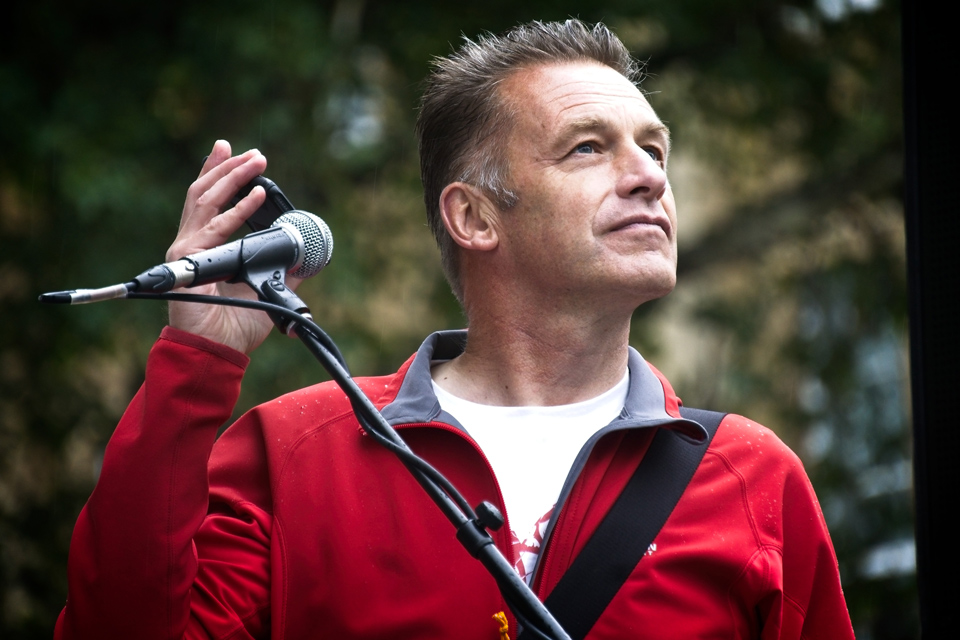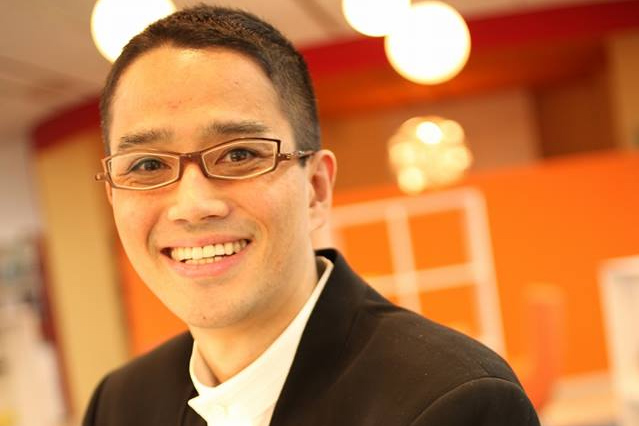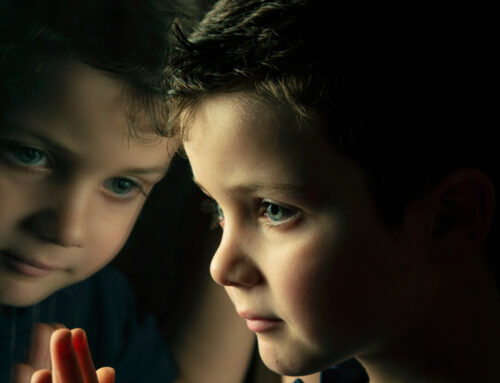10% of children with High Learning Potential face significant personal hurdles, according to the most recent government statistics analysed by Potential Plus UK. These high potential learners are gifted, yet experience one or more special educational need or disability. Hence, they are often identified with the terms ‘Dual or Multiple Exceptionality’ (DME) or ‘Twice Exceptional’ (2e).
Coping with these (DME) traits can be tricky; especially alongside a possible tendency of high potential learners towards perfectionism. So, are there any role models who might encourage giving things a go and continuing to aim high despite challenges? Young people with DME grow into fascinating teenagers and amazing adults, but may well need guidance to problem solve a path through their own individual combination of strengths and difficulties.
Many of the people we mention here did not receive an autism diagnosis (or Asperger syndrome or high functioning autism) until their teenage years or even adulthood. If you have concerns about a child in your care, speak to their GP or school SENDCo (Special Educational Needs and Disabilities Coordinator).
What is Autism?
“Autism spectrum disorder (ASD), usually called autism, is something you’re born with. Autism means that the way you think about and experience the world is different to most people. This means you can behave differently to most people, and have different strengths and difficulties. For example, some autism characteristics (things you think, feel and do) can make it hard to express yourself in social situations, but you may also be particularly knowledgeable and passionate about topics that interest you.
Autism is highly variable – the word ‘spectrum’ refers to how autism is experienced differently by different people […] – some autistic people might need more support than others to live the lives they want to lead. The way autism affects you can change as you grow and develop, and experience different environments.” (NHS inform; Scotland’s national health information service; retrieved 16/02/2022)
For a description of strengths often shown in autistic people as part of a detailed guide to Autism Spectrum Disorder, ASD, including characteristics and aspects relating to age, gender and environment, see NHS Inform – Autism Spectrum Disorder . Alternatively consult the National Autistic Society for support from a specialist charity.
Inspirational Figures on the Autism Spectrum
Chris Packham, TV Presenter (Springwatch), conservationist and Patron for the National Autistic Society
Famous for presenting the BBC’s BAFTA Award-winning Spring/Autumn/Winterwatch as well as many other shows, (e.g. Nature’s Weirdest Events, Secrets of our Living Planet), Chris Packham is also one of the UK’s best loved photographers, writers and conservational campaigners. Since being diagnosed in his 40s, he has also been trailblazing support for the “vulnerability” of autism through projects such as Chris Packham: Asperger’s and Me for the BBC and others where he explores ‘inside the autistic mind’.
Describing his own ‘autistic mind’ as “constantly bouncing from one subject to the next”, Chris has nevertheless managed to focus his own personal areas of unwavering passion, (to bring about positive change by highlighting issues to do with autism as well as the natural world), and boosted them with his outstanding ability to research and recall a wide range of topics. His ‘autistic mind’ has enabled (not prevented) his position as an international personality, while discovering that his ‘quirks’ have merely added to his popularity and charisma. What a great inspiration for so many fans of his!
This is not to say it is always easy; social situations are an integral part of working in the public eye and Chris can struggle with these and says he finds human relationships difficult. However, receiving an Asperger’s diagnosis has allowed Chris to gain awareness and support, despite still “experiencing the world in a very different way, with heightened senses that at times are overwhelming”.
In an incredibly heart-felt message that will surely motivate all autistic high potential learners, Chris blogged the following “to parents, friends, colleagues and a large number of isolated, unhappy, confused children, teenagers and adults”:
“We don’t need a cure, there is nothing wrong with us – we are different. And that difference has enormous biological and social importance. Many of us have skills to invent solutions, produce art and science to benefit all and to receive these gifts, all we need in return is understanding, tolerance and acceptance. For all autistic people it mustn’t any longer be about what we can’t do, it’s got to be about what we can do.”
For the full blog, see: Asperger’s And Me – Thank you from Chris Packham

Image: Detail – Chris Packham Walk for Wildlife 2018 CC BY 2.0 by Garry Knight https://commons.wikimedia.org/w/index.php?curid=76235654
Satoshi Tajiri, creator of Pokémon, magazine creator and game designer
As a young child in Japan, Satoshi was nicknamed “Dr Bug” due to his obsession with collecting creepy crawlies. As he grew older, he became consumed by video games, even to the point that he dropped out of school. Aged 17, he had caught up with some of his studies, but his passions had fuelled him to create an arcade gamers’ fanzine called Game Freak. By 1989, the magazine project had morphed into an actual games software development company, which then provided the inspiration behind Pokémon, after Satoshi pitched his idea to Nintendo.
Diagnosed with high functioning autism as a young child, Satoshi is now a millionaire who is a great success story for high potential learners. In Pokémon, Satoshi has created a bug-collector’s paradise with lots of facts, consistent features and characters that have concrete, absolute functions. Violence is toned down and characters faint rather than dying when they are defeated. These features are considered to appeal to the autistic brain – and have clearly also proven an enormous success across a huge range of players.
One step further than this is the impact that Pokémon Go has had on the lives of many autistic children who did not want to leave the house, but who are now motivated to explore outdoors for PokéStops and thereby also create new real-world friendship networks. Young autistic people with high learning potential can learn from Satoshi’s example that it is possible to harness their in-depth interests and channel them in a positive way – both personally and for others.
See: https://the-art-of-autism.com/how-satoshi-tajiris-autism-helped-create-pokemon/

Satoshi Tajiri photo image GameFreek (2016)
Guy Martin, world-record holding Motorbike racer, author and TV presenter
Guy Martin appears regularly on our screens, consumed by his fascination for taking apart engines, tuning them for more speed – and then testing them out! Famously known for racing motorbikes (reaching over 130mph on the Isle of Man TT circuit) and challenging all manner of unusual speed records (from electric cars to a gravity-powered snow sled and Guiness World Record in 2014), Guy has Asperger’s syndrome and knows the importance of a balance that suits him. He underpins everything with a lifestyle out of the public eye, based in his native Lincolnshire and still works as a lorry mechanic for a haulage company.
Guy openly plays down his diagnosis of Asperger’s syndrome. He doesn’t take it too seriously or let it limit him, preferring to allow it to fire his passions, (but being mindful that he needs quiet downtime, too). Guy considers that a possible benefit to Asperger syndrome is that “you just get your head down and get on with things. I apply that to the way I work. If you’ve got an awkward job at work, you just get your head down until it’s sorted. […] It’s probably what helps me with endurance racing on my mountain bike. I’m not quick but I’m good at getting my head down” https://www.driving.co.uk/news/features/guy-martin-racing-formula-ones-jenson-button-aspergers-theres-life-bikes/
These are encouraging words for young people with high ability on the autism spectrum who are struggling to be resilient. Guy’s approach can motivate them to negotiate the challenges of balancing their passions, strengths and weaker areas.

Image: Guy Martin au Bol d’Or 2014 CC BY-SA 4.0 by Eric HOUDAS https://en.wikipedia.org/wiki/Guy_Martin#/media/File:Guy.Martin.JPG
Dr Sarai Pahla, ‘Ted Talk’ presenter, United Nations speaker and diversity champion
Dr Pahla is a fully qualified medical doctor (MBChB) and freelance medical translator who graduated from the University of Cape Town, South Africa, in 2005. Following a diagnosis of autism spectrum disorder in 2013, Sarai discovered her new calling and become an international advocate for people on the autism spectrum; she has spoken at TEDx Münster in Germany as well as at the United Nations in New York for World Autism Awareness Day. Sarai holds a personal passion for social entrepreneurship and creating worldwide business solutions that welcome autistic employees.
Dr Pahla takes the diversity of her life experience and how she has met various forms of prejudice and weaves these themes positively into her outreach work. Her personal account of being an autistic young person growing into adulthood and struggling to understand the social cues, body language aspects and emotional expressions of friendships and romantic relationships is touching and thought-provoking. Her Ted Talk, Women and Autism: Towards a Better Understanding, is an inspiration for all young people with high learning potential who are on the autism spectrum. For their parents and friends, (and possible partners), it may even provide life-changing insights for all levels of relationship.
In an endearingly honest way, Sarai herself describes “finding interacting with people inefficient and exhausting” and admits that dressing nicely for a social event is “unbearable” due to sensory overload. She outlines her dream of having a “no talking date”; a dream that many young people with autism will share. In this, she would sit alongside the other person, (so as to allow a “real-life connection”), and communicate using handheld devices, (so as to more easily block out external factors). Crucially, she feels this would also take the pressure off trying to read body language – or consciously “manipulating her own face into the right expressions”, as she puts it. In time, Sarai enthuses how autistic friends and partners can be unusually “loyal and passionate – and reward the understanding, direct communication and tolerance they have been shown with unconditional love”.
Her message? “Research autism spectrum disorders so that you can react with understanding and sympathy instead of rejection and ridicule.”
View other inspiring people with autism giving Ted Talks at Ted Talk Playlist The Autism Spectrum
See other blogs on Inspirational Figures with dual or multiple exceptionality and discover individuals such as Stephen Wilshire and Kim Peek

About the author: Gillie Ithell is a writer, editor and advisor for Potential Plus UK with a B.A. in Modern Languages & Communication and further qualifications in mental health. Having worked internationally as content manager of classic board games and ‘edutainment’ software, Gillie now writes to inspire others like herself; on a daily journey with High Learning Potential.





